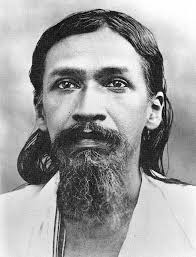Madhya Pradesh Switch to Hindi
World Photography Day
Why in News?
On the occasion of World Photography Day (19th August), Indore’s significant contributions to the art of photography are being celebrated. The city’s rich photography heritage traces back to the late 19th century with pioneers like Lala Deendayal.
Indore’s Contribution in Photography
- 19th Century Roots in India:
- William Armstrong (1847): First British photographer to capture images of Ajanta-Ellora caves.
- Indore’s Photography Journey: Lala Deendayal opened Indore's first photo studio (1888). Deendayal’s work gained recognition from local royals, earning him land and the title 'Raja Deendayal' from the Nizam.
- After Deendayal’s departure, several photographers carried on his work.
- Notable Photographers:
- Bhalu Mondhe (Padma Shri Awardee): Introduced color photography in Indore in 1975 and established the first color lab, revolutionizing the field in the city.
Key Facts About World Photography Day
- About: World Photography Day (19th August) is celebrated to honor the invention of the daguerreotype process ('Daguerreotype Camera').
- On this day in 1839, the French government officially announced the daguerreotype, developed by Louis Daguerre in 1837.
- The daguerreotype process was an early photographic process that produced a highly detailed, one-of-a-kind positive image on a silver-coated copper plate and laid the foundation for modern photography.
- Theme 2025: "MY FAVORITE PHOTO".
- History of World Photography Day:
- Proposed by Indian photographer and teacher O.P. Sharma in 1988.
- Became a global online phenomenon in 2005.
- Promoted online as "World Photo Day" starting in 2010 by Australian entrepreneur Korske Ara.
- North American producer John Morzen played a key role in shaping and expanding the global recognition of World Photography Day.
National Current Affairs Switch to Hindi
153rd Birth Anniversary of Sri Aurobindo
Why in News?
On 15th August 2025, PM Narendra Modi paid tribute to the philosopher and freedom fighter Sri Aurobindo on his 153rd birth anniversary, acknowledging his profound impact on India’s nation-building journey.
- He highlighted that Aurobindo's philosophy and spirituality guided the nation's growth toward realizing its potential.
Key Facts About Sri Aurobindo
- About: Aurobindo Ghose was born in Calcutta on 15th August 1872. He was a yogi, seer, philosopher, poet, and Indian nationalist who propounded a philosophy of divine life on earth through spiritual evolution.
- He died on 5th December 1950 in Pondicherry.
- Education:
- His education began in a Christian convent school in Darjeeling.
- He entered the University of Cambridge, where he became proficient in two classical and several modern European languages.
- He returned to India in February 1893 at the age of twenty-one and commenced his service in the Baroda State.
- He began the study of Yoga and Indian languages, including classical Sanskrit.
- Indian Revolutionary Movement: From 1902 to 1910, he partook in the struggle to free India from the British. As a result of his political activities, he was imprisoned in 1908 (Alipore Bomb case).
- Spirituality: In Pondichéry, he founded a community of spiritual seekers (1910), which took shape as the Sri Aurobindo Ashram in 1926.
- He believed that the basic principles of matter, life, and mind would be succeeded through terrestrial evolution by the principle of supermind as an intermediate power between the two spheres of the infinite and the finite.
- Literary Works:
- In 1906, he became the editor of Bande Mataram, an English newspaper (founded by Bipin Chandra Pal in 1905).
- Bases of Yoga
- Bhagavad Gita and Its Message
- The Future Evolution of Man
- Rebirth and Karma
- Savitri: A Legend and a Symbol
- Hour of God
- The Five Dreams of Sri Aurobindo: In 1947, upon India’s independence, Aurobindo shared his five dreams, which included a free and united India, the resurgence of Asia, a global union for a fairer life, India’s spiritual gift to the world, and a transformative step in human evolution towards higher consciousness and societal perfection.
- Auroville: Auroville, founded by Mirra Alfassa (The Mother) in 1968, is an experimental township in Pondicherry that embodies Aurobindo’s vision of a global, spiritually united community.
- Endorsed by UNESCO in 1966, it emphasizes sustainable living and addresses humanity's future cultural, environmental, social, and spiritual needs.





 PCS Parikshan
PCS Parikshan



